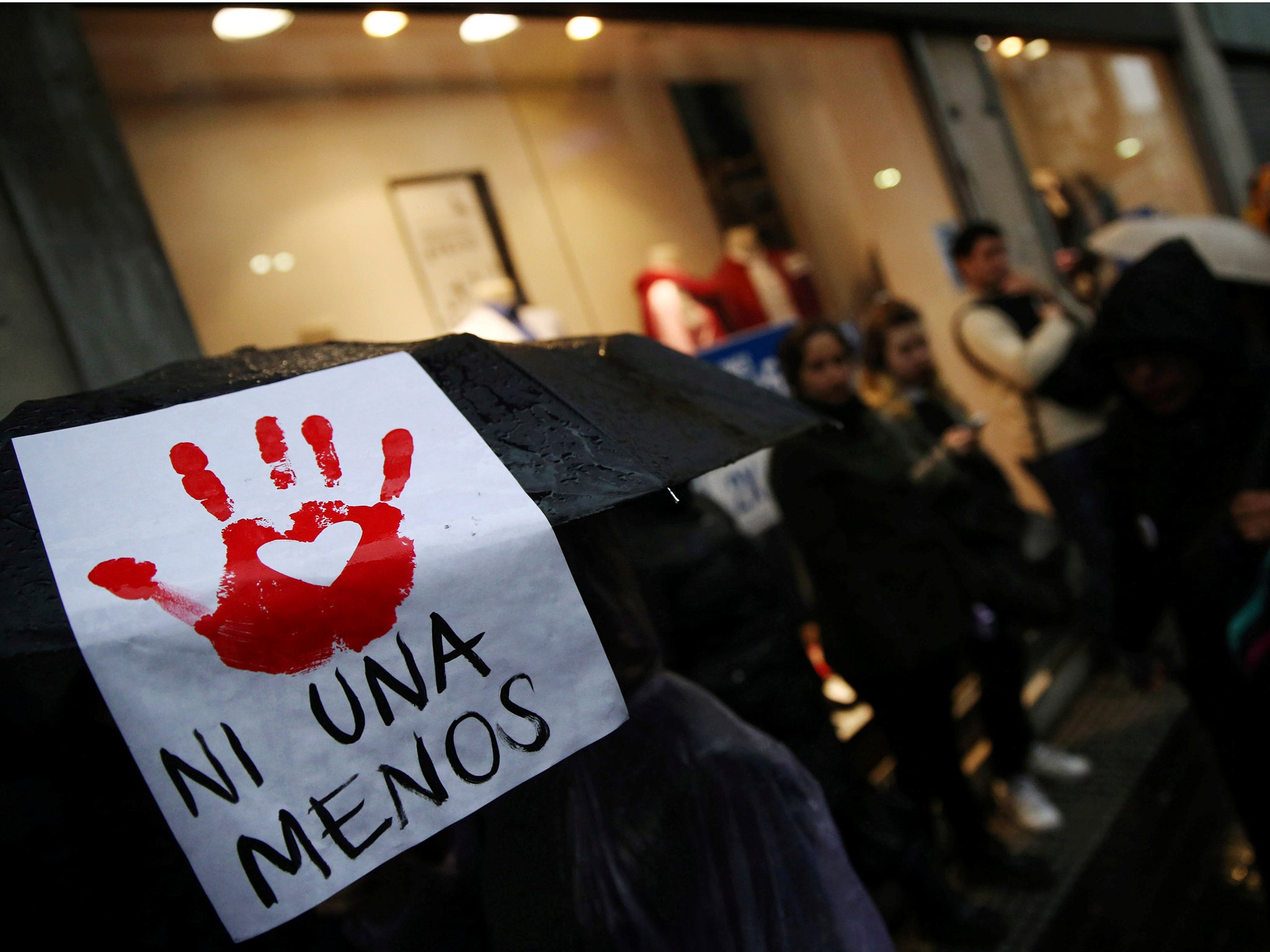Tens of thousands of Argentines march in Buenos Aires to condemn violence against women
'What's happening is horrible. And it's happening every day'

Tens of thousands of Argentines marched in the capital of Buenos Aires on Wednesday to condemn violence against women, the latest public outcry following the brutal killing of a 16-year-old girl who was drugged, raped and tortured.
Lucia Perez was killed in the coastal city of Mar del Plata earlier this month. Authorities say she was forced to consume cocaine, and was later raped and impaled by two men who have been arrested. The prosecutor investigating the crime called the attack “an act of inhuman sexual aggression.”
The demonstrators, including schoolchildren and women with children in strollers, braved the heavy rain to gather at the iconic Obelisk in downtown Buenos Aires. Chanting slogans and carrying banners and flags, they marched to the pink presidential palace at the Plaza de Mayo square.
“I'm here to demand justice for my grandchildren,” said Helga Scumlitz, 74, who was moved to join the march after she heard about the gruesome killing of Lucia Perez in the news. “What's happening is horrible. And it's happening every day.”
The demonstration, which is being echoed across Argentina and in other Latin American countries, was organized on social media by women's groups under the slogans NiUnaMenos, meaning “Not one less” and “Black Wednesday.”
“I heard about this girl who was raped to death. It's so unfair and it should never happen again,” said Malena Resino, a 14-year-old student who joined the march with her classmates after school. “I'm very proud that so many people joined because together we can achieve something.”
There were 275 gender-based killings of Argentine women in the past year, according to Casa del Encuentro, a women's rights group and shelter. In 40 of those cases, women had reported attacks by men, and some even had restraining orders.
“How many more like Lucia are out there and nothing has been done?” Marta Montero, the mother of Lucia Perez asked during an interview with local radio Vorterix.
Demonstrators, who dressed in black to mourn Perez and other victims, also staged a brief work stoppage earlier in the day as a sign of protest.
“It's important that not only women but also men join this movement. Our husbands are here wearing black and are supporting the protest,” said Monica Pavicich, 59, who demonstrated with her work colleagues in downtown Buenos Aires.
Similar marches against gender-based violence also took place in Mexico, Bolivia, Chile, Paraguay and Uruguay.
A large banner carried by protesters in one of the main avenues of the Chilean capital read: “Furious and in mourning.”
More than 25,000 people were estimated to have demonstrated in Santiago and more than 20 other cities throughout the country.
Hundreds of people gathered at Mexico City's Angel of Independence monument. Many of them had purple and black handprints painted on their bodies to protest gender violence.
Diana Echeverria, a 23-year-old student, said she was forced to flee her home state of San Luis Potosi after she was sexually abused a year ago.
“The authorities refused to help me,” she said. “They told me that this is what life is like.”
Associated Press
Join our commenting forum
Join thought-provoking conversations, follow other Independent readers and see their replies
Comments